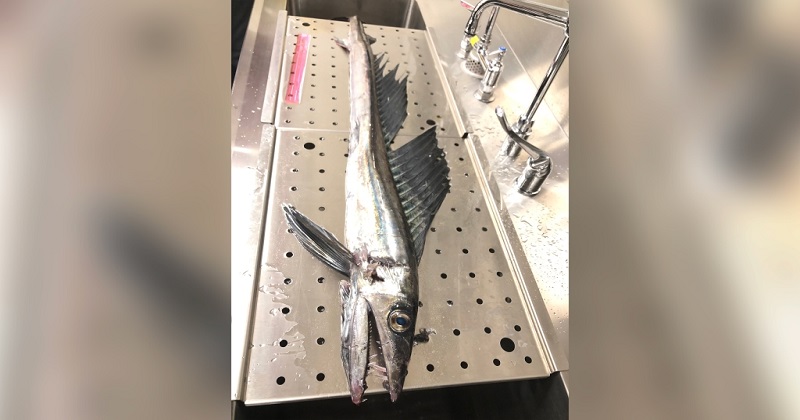
A 4-foot lancetfish washed ashore at the Scripps Institution of Oceanography at the University of California, San Diego on Tuesday. Although not extremely unusual, it was the first lancetfish maintained by the institution since 1996, and just the 17th from a San Diego beach since 1947, the experts said.
The discovery came less than a week after a Pacific footballfish, a deep-sea anglerfish far rarer than the lancetfish, washed ashore on Black’s Beach approximately three miles distant.
The fish, dubbed SIO 21-37, is the newest addition to the SIO’s Vertebrate Collection. The fish was discovered alive at La Jolla Shores but did not survive once on land, according to manager Ben Frable. Frable stated that it had been ‘bombarded by seagulls’. SIO 21-37, on the other hand, will be preserved likely for hundreds of years.
Frable added that the fish might have arrived on the shore for a variety of reasons, including fleeing a predator or being entangled in a current and unable to swim away.
Also Read: Chewing gum for COVID-19: This invention can reduce coronavirus transmission
According to the National Oceanic and Atmospheric Administration, Lancetfish have large eyes, fanged teeth, and a slithery body. Lancetfish are known cannibals who eat other fish and invertebrates. They are hermaphrodites, meaning they have both reproductive organs. The fish may grow to be over 7 feet long and have a slow digestive system.

Post Your Comments